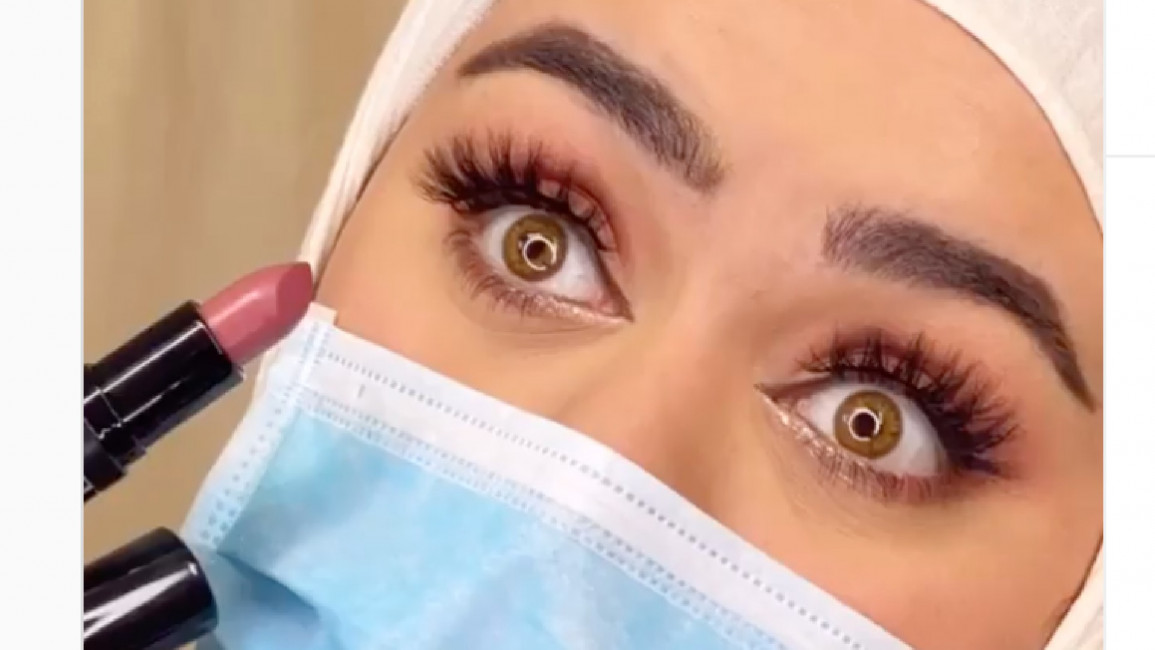'Disrespectful': Iraqi make-up influencer slammed for 'coronavirus look' amid mounting death toll
Fatima Aldewan, who has more than 80,000 followers on popular social media platform Instagram, posted the video in which she provides instructions for how to create the perfect coronavirus make-up look.
The nearly six-minute video, which as the influencer says was recorded due to requests from her followers, begins with how to correctly wear the medical face mask before delving into applying makeup onto her face.
However, despite garnering more than 76,000 views online, the video was met with widespread criticism and accusations of downplaying a major global pandemic.
"Whitewash! People are dying from this illness and you are taking it as mere fun," one social media user commented on the video.
Read also: US begins coronavirus vaccine trial as worldwide governments impose 'lockdowns'
"Even the coronavirus now has a makeup look. What kind of stupidity are you guys living in?" another user says.
"People are dying from this illness, show some respect and have some boundaries," another says.
The COVID-19 virus, which was first detected in China's Wuhan in December, has killed more than 6,526 people worldwide, while over 170,855 infections have been confirmed.
The majority of those that become infected experience only mild or moderate symptoms, including fever and a dry cough.
However, concerns have been raised for the elderly and those with existing health issues, who have reportedly suffered with more severe complications, including pneumonia and even death.
As of yet, there are no known treatments for the virus, though more than 77,781 have already recovered from the infection.
The World Health Organisation has confirmed those who experience a milder version of the virus recover in about two weeks, while those with more severe illness may take three to six weeks to recover.
| Instagram Post |
As the pandemic continues to spread across the world, dozens of research groups around the world are racing to create a vaccine while governments continue to impose strict restrictions or "lockdowns" to help stem the spread of the virus.
Regional lockdowns
In Aldewan's native home country Iraq, a total of 124 people have been infected, with authorities confirming at least 10 total deaths.
The first recorded fatality was a 70-year-old imam in Sulaimaniyah, and 28 others in the region are confirmed to have been infected.
Iraq has been particularly worried about a spread of the virus from neighbouring Iran, which has been one of the worst-hit countries.
Iraq has officially closed its crossing points along the entire frontier with Iran, but authorities fear that people can still use smuggling routes and informal crossings to travel undetected.
In a broader move, Kurdish authorities have banned travel to federal Iraqi provinces for two weeks starting Saturday and have barred large gatherings and sporting events.
Read also: Islamic State's advice for fighting coronavirus: 'Put your faith in God'
The decision is likely to cripple Kurdish new year celebrations, set to take place from around 19 March.
Iraq's federal authorities have announced bans on non-Iraqi travellers coming from around a dozen countries facing COVID-19 outbreaks.
While authorities have not imposed a nationwide curfew, the province of Nineveh, which neighbours the Kurdish region, announced its own 48-hour lockdown from Saturday night.
Federal authorities have shut schools, shopping centres and movie theatres across the country, and government agencies have slashed their opening hours.
Shia Muslim shrines in the south have remained open, under pressure from religious and political authorities.
A massive COVID-19 outbreak in Iraq would likely overwhelm the country's health system, worn down by years of conflict, inadequate investment and chronic shortages.
Meanwhile, in the UAE, 98 people have been diagnosed with the novel coronavirus though no deaths have been reported.
Gulf countries have shut down cinemas and other entertainment centres - some even closing gyms and spas.
Kuwait has taken the strictest measures in the GCC by largely locking down the country over the weekend.
Saudi Arabia has also told public sector staff to work from home, while only pharmacies and food stores will be open in malls.
Other countries in the Gulf have announced the closure of public events and spaces in a bid to control the spread.
Follow us on Facebook, Twitter and Instagram to stay connected



